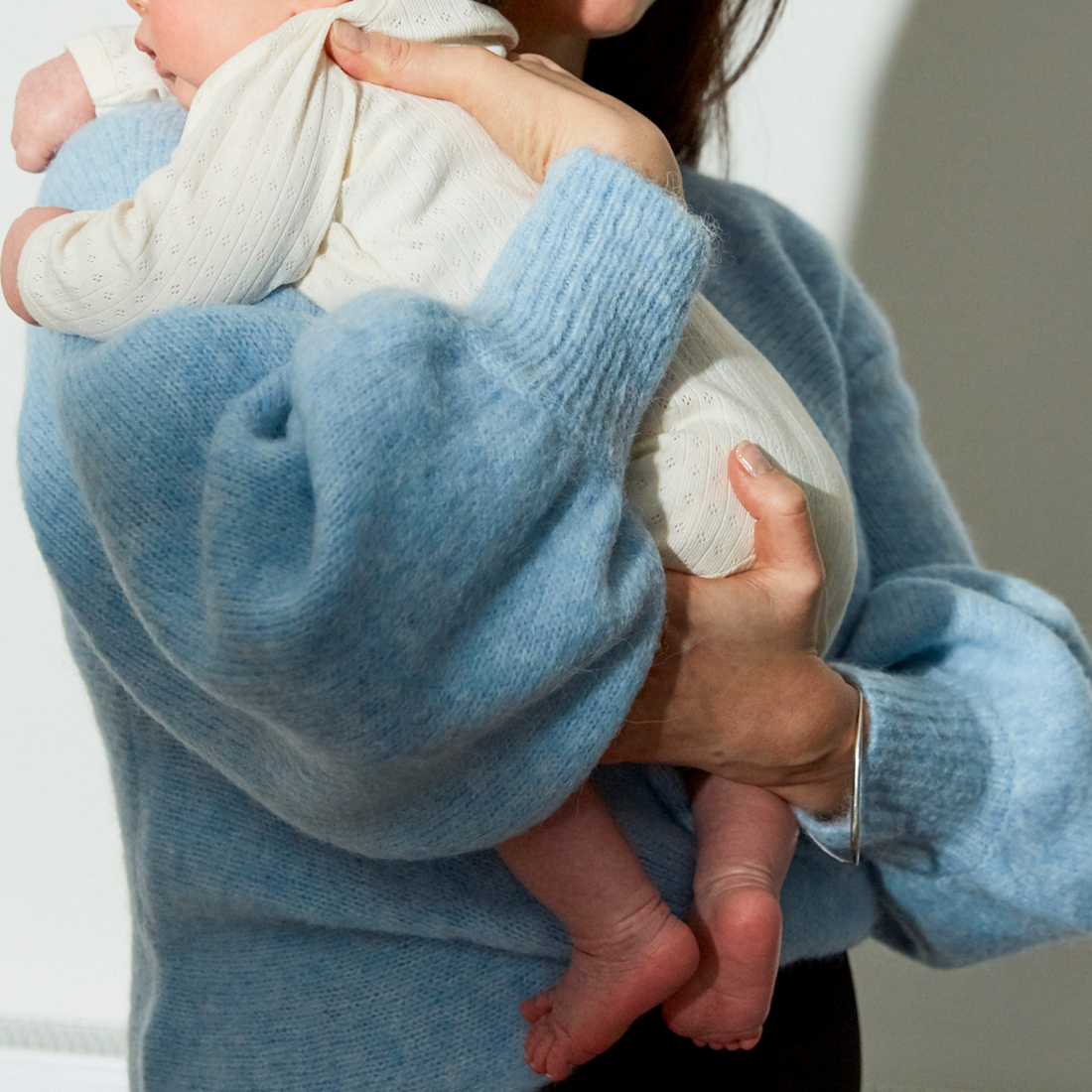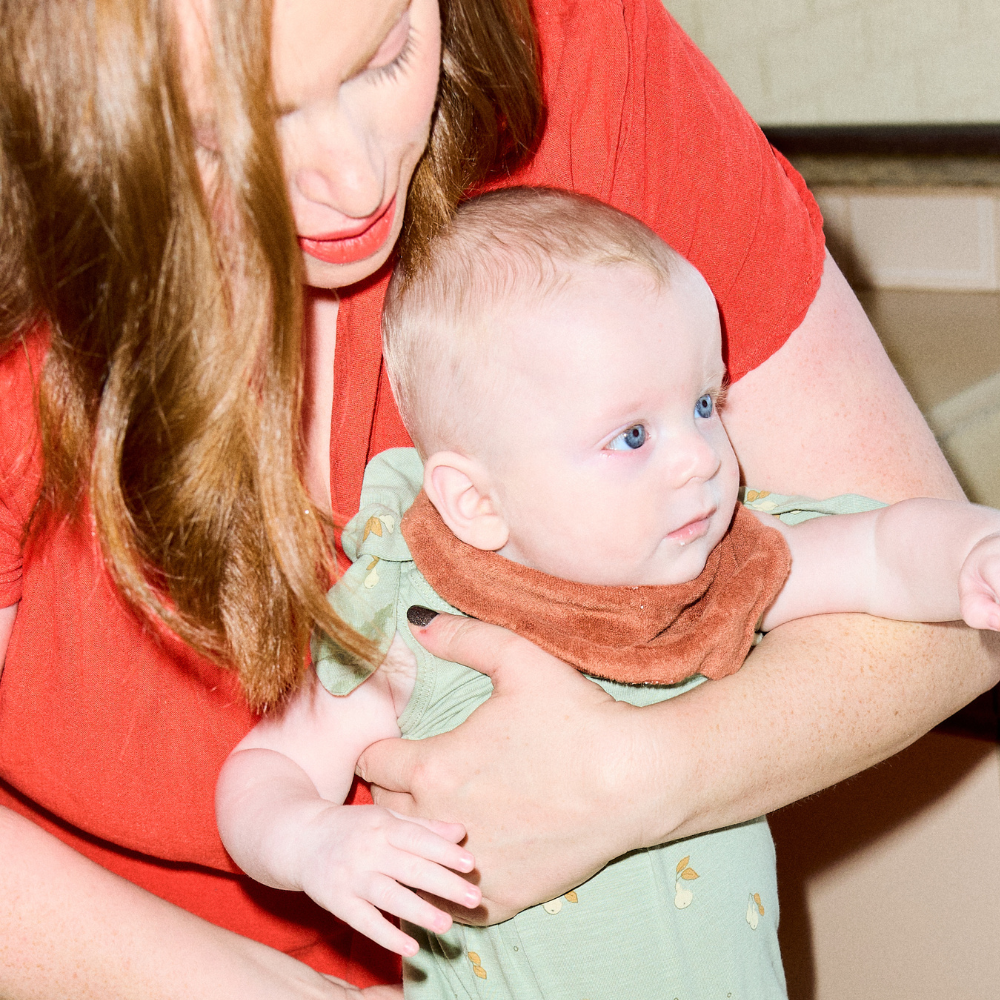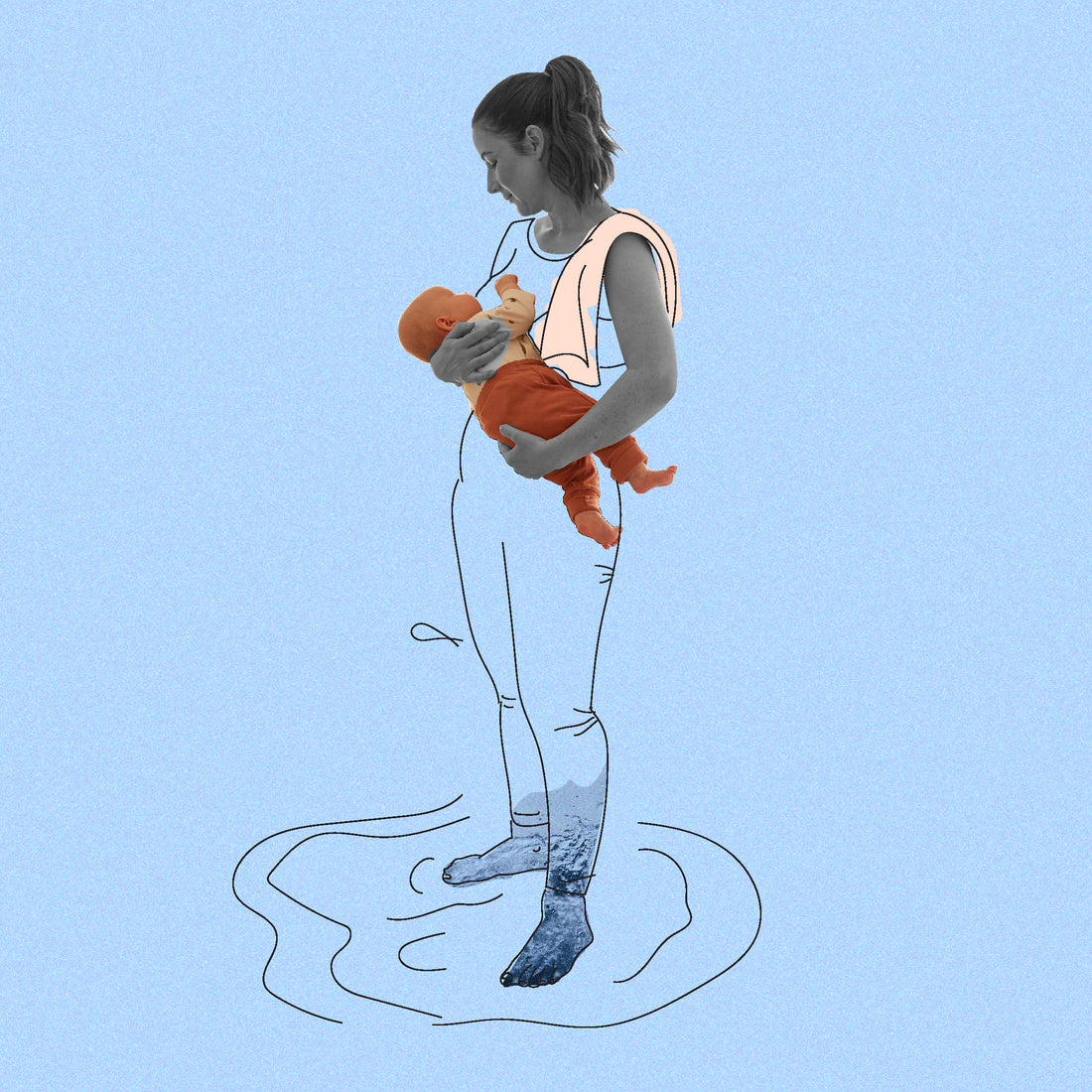Let’s start at the beginning, “baby blues” is a (somewhat dismissive) term for a very specific occurrence that happens after giving birth. It is better described as the emotions that accompany the huge postpartum hormone dump that happens after your baby is born and the placenta removed. For context the change in hormones is the equivalent of going from taking 100 birth control pills a day to 0 by day three postpartum. It is the largest hormone shift in the shortest amount of time in any human life. Understandably, there’s some emotions that come with such a ginormous physiological change, notably sadness, irritability and overwhelm, but also fatigue, crying and shaking, it’s the feelings and reactions that are denoted as “baby blues”. Here, Perinatal Specialist GP & Lactation Consultant, Dr Kavita Krishnan explains the postpartum hormone jump and baby blues, because understanding it is one of the best ways to deal with it.
The Memo: Does everyone experience baby blues?
Dr. Krishnan: While everyone who gives birth experiences the postpartum hormone dump, not everyone experiences the baby blues that come with it. However, the vast majority (80%) do. The type of symptoms experienced are different for each person, and with each birth, but commonly they are emotional vulnerability, feelings of overwhelm and sadness, sudden bursts of tears, mood swings, irritability and sensitivity (to people but also to lighting, visual clutter, clothing or noise), fatigue and exhaustion.
The Memo: When does it happen and how long do baby blues last?
Dr. Krishnan: The baby blues typically occur within the first few days after birth and usually resolve within two weeks.
The Memo: What is the difference between baby blues and postnatal depletion or postpartum depression?
Dr. Krishnan: The baby blues are a temporary emotional state with symptoms that resolve within two weeks. Postnatal depletion refers to a condition where new mothers experience physical and emotional exhaustion after childbirth, often characterised by fatigue, low energy, mood swings, and difficulty coping with daily tasks. Unlike the temporary baby blues, postnatal depletion can last longer and may arise from a combination of hormonal changes, sleep deprivation, nutrient depletion, and the demands of caring for a newborn. This state can affect a mother's overall well-being and may require support, self-care, and sometimes professional intervention to address. Postpartum depression is a more severe, long-lasting form of depression. It may interfere with your ability to care for your baby and handle other daily tasks. There is no one cause of postpartum depression, but you are at higher risk if you have a family history depression or have other hardships happening in your life. It's sometimes called peripartum depression because it can start during pregnancy and continue after childbirth. It can also start years after birth, in fact, mothers are more likely to be depressed four years after childbirth than at any point in the first 12 months after giving birth. New parent mental health checks are frequent with your GP or maternal health nurse. During these, it is important to be open and honest and express your feelings. If you have postpartum depression, prompt treatment can help you manage your symptoms.
The Memo: What actually causes the postpartum hormone dump?
Dr. Krishnan: The hormone drop is actually caused by the birthing of the placenta, not the baby. The placenta makes the hormones which sustain the pregnancy and the sudden and immediate withdrawal of these hormones causes the 'baby blues'.
The Memo: What is the best way to deal with the baby blues?
Dr. Krishnan: Knowing what is happening and that is normal and not a reflection of you as a parent can help. Seek support from friends, family, nurses and midwives. Practising self-care, engaging in light physical activity, and talking about your feelings with others can help.
If you are a new parent and need support, contact PANDA on 1300 726 306

















